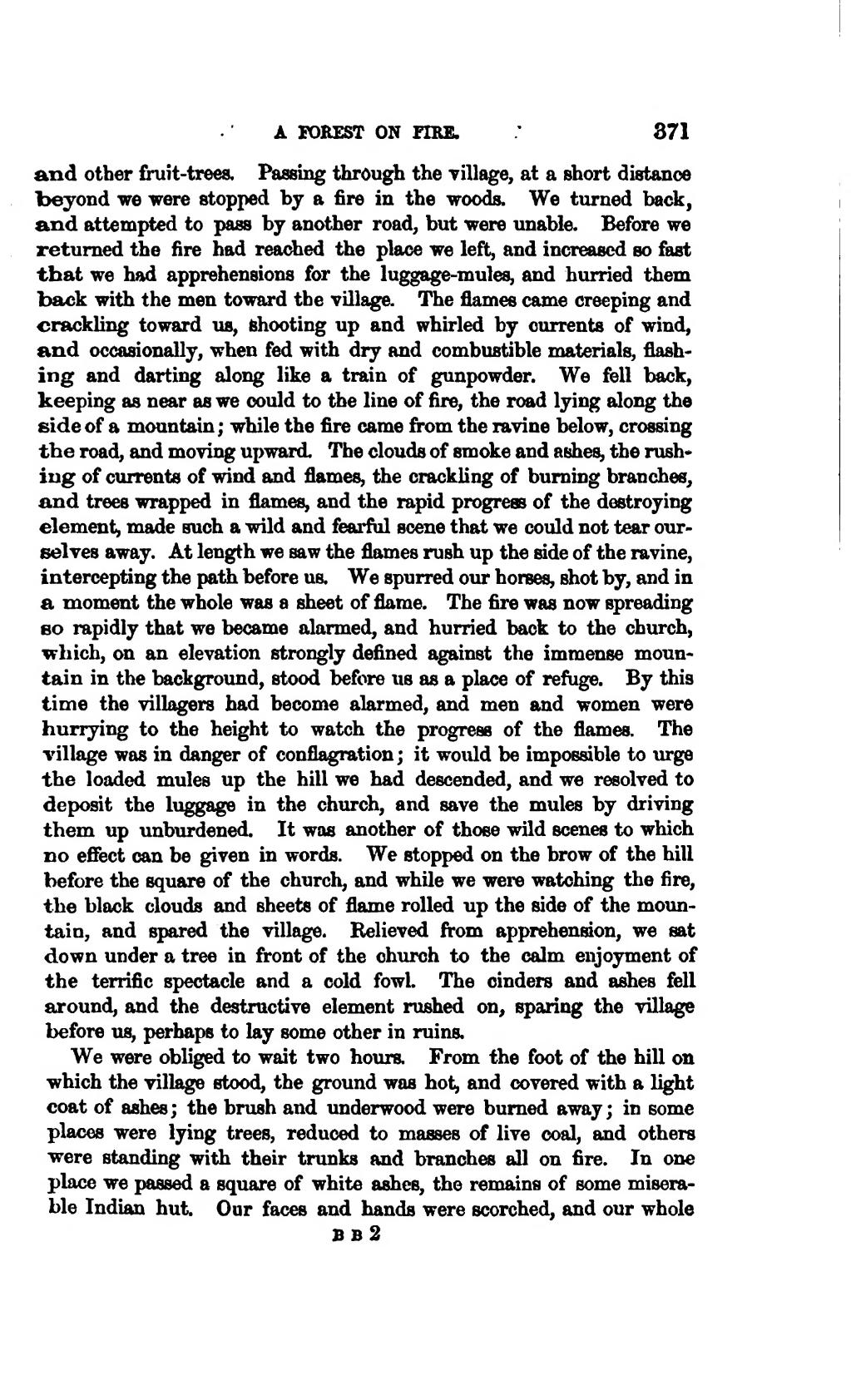and other fruit-trees. Passing through the village, at a short distance beyond we were stopped by a fire in the woods. We turned back, and attempted to pass by another road; but were unable. Before we returned the fire had reached the place we left, and increased so fast that we had apprehensions for the luggage-mules, and hurried them back with the men toward the village. The flames came creeping and crackling toward us, shooting up and whirled by currents of wind, and occasionally, when fed with dry and combustible materials, flashing and darting along like a train of gunpowder. We fell back, keeping as near as we could to the line of fire, the road lying along the side of a mountain; while the fire came from the ravine below, crossing the road, and moving upward. The clouds of smoke and ashes, the rushing of currents of wind and flames, the crackling of burning branches, and trees wrapped in flames, and the rapid progress of the destroying element, made such a wild and fearful scene that we could not tear ourselves away. At length we saw the flames rush up the side of the ravine, intercepting the path before us. We spurred our horses, shot by, and in a moment the whole was a sheet of flame. The fire was now spreading so rapidly that we became alarmed, and hurried back to the church, which, on an elevation strongly defined against the immense mountain in the background, stood before us as a place of refuge. By this time the villagers had become alarmed, and men and women were hurrying to the height to watch the progress of the flames. The village was in danger of conflagration; it would be impossible to urge the loaded mules up the hill we had descended, and we resolved to deposit the luggage in the church, and save the mules by driving them up unburdened. It was another of those wild scenes to which no effect can be given in words. We stopped on the brow of the hill before the square of the church, and while we were watching the fire, the black clouds and sheets of flame rolled up the side of the mountain, and spared the village. Relieved from apprehension, we sat down under a tree in front of the church to the calm enjoyment of the terrific spectacle and a cold fowl. The cinders and ashes fell around, and the destructive element rushed on, sparing the village before us, perhaps to lay some other in ruins.
We were obliged to wait two hours. From the foot of the hill on which the village stood, the ground was hot, and covered with a light coat of ashes; the brush and underwood were burned away; in some places were lying trees, reduced to masses of live coal, and others were standing with their trunks and branches all on fire. In one place we passed a square of white ashes, the remains of some miserable Indian hut. Our faces and hands were scorched, and our whole
